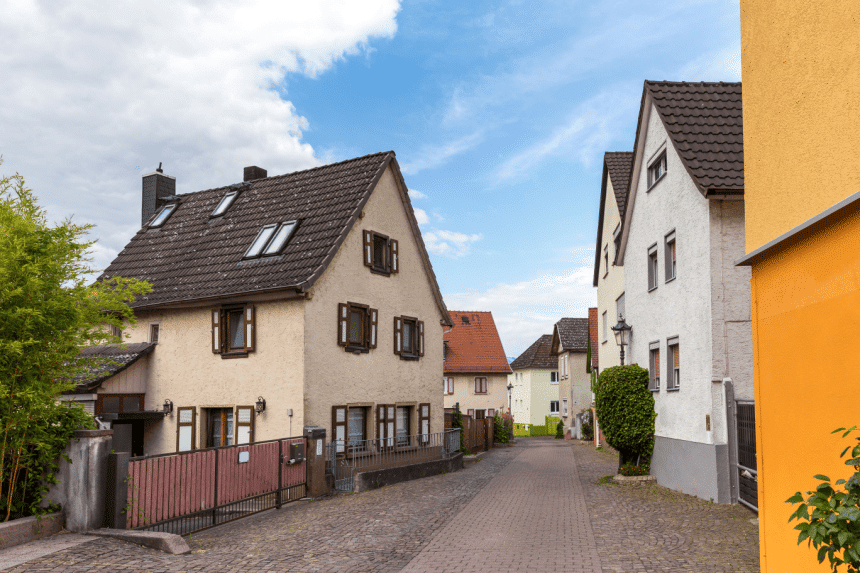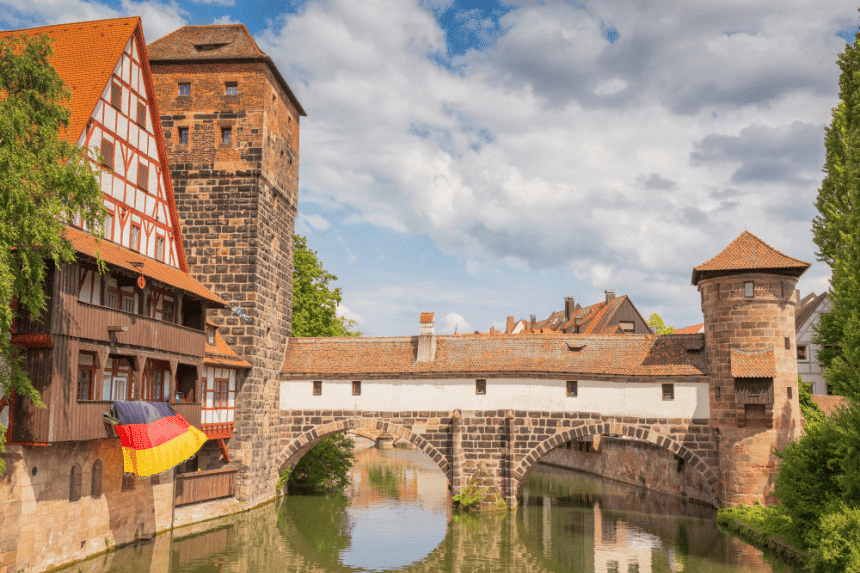Typically, when we think of Romance languages, languages like Spanish, French, and Italian may come to mind. But does the German language also fit in here? In this post, we explore the origins of the German language and whether or not it belongs to the Romance language family.
What Is a Romance Language?
First off, to address whether a language is a Romance language, it’s essential to understand what a Romance language is (and isn’t). Romance languages are derived from Latin, specifically Vulgar Latin. This was the colloquial form of Latin spoken by commoners in the Roman Empire.
Slowly, as the Roman Empire spread across Europe, Latin evolved in different pockets of Europe into the modern Romance languages we recognize today, including French, Spanish, Portuguese, Italian, and Romanian (yes, that one surprises many people).

So, does German fit into this category of Romance languages? While German has definitely been influenced by Latin to an extent, it is not classified as a Romance language. Instead, German belongs to its own linguistic family: the Germanic languages.
German Language Origins
The German language is part of the broader Indo-European language family, which includes Romance languages, but also branches off into different subgroups. German is specifically a member of the West Germanic language group, which includes English, Dutch, and Afrikaans (another surprise).
The roots of the German language can be traced back thousands of years. Its earliest forms stem from a common Proto-Germanic ancestor, which was spoken by Germanic tribes in Northern Europe as far back as 600 BCE.
Over time, Proto-Germanic split into various dialects and languages across regions, one of which evolved into Old High German, a direct predecessor of the modern German language.
How Old Is the German Language?
This is not an easy question to directly answer, mostly due to German’s incremental and iterative changes over centuries. The German language has gone through several stages of development:
- Old High German (approx. 500–1050 CE): This early form of German was spoken by Germanic tribes in Northern Europe and is considered by many to be the foundation of modern German. Old High German had a complex system of declensions and verb conjugations that evolved over time, influencing the structure of modern German.
- Middle High German (approx. 1050–1350 CE): As the Roman Empire maintained its grip on Europe, the German language continued to develop and evolve. This period saw the rise of courtly literature, such as the famous “Nibelungenlied,” and a shift in dialects due to regional variations.
- Early New High German (approx. 1350–1650 CE): During this time, German underwent significant changes, driven largely by events such as the printing revolution, Martin Luther’s translation of the Bible, and increased literacy among commoners. This laid the groundwork for Modern German.
- Modern German (approx. 1650 CE–Present): Today’s German language has been largely shaped by the standardized version created in the 18th and 19th centuries, based on various regional dialects. Modern German retains many of its original features while evolving in vocabulary and syntax.
Given these stages, the language we now call German has existed in some form for over 1,500 years, making it a relatively old language in the context of European history.
Is German a Latin Language?: German’s Direct Relationship with Latin
While German is not a Romance language, the influence of Latin on German can’t be overlooked. Latin played a significant role in shaping many European languages, including German, though it didn’t ultimately result in German becoming a Romance language.
The Roman Empire’s northernmost territories bordered Germanic-speaking regions, and Latin was widely used in religion, law, and education during and after the Roman Empire. However, unlike the Romance languages, which evolved directly from Latin, German kept its distinct Germanic roots and absorbed Latin vocabulary in certain areas, particularly related to areas such as religion, law, science, and education.

As an example, words like Kaiser (emperor) and Fenster (window) have Latin origins (Caesar and fenestra).
During the Middle Ages, Latin was the common language of educated Europeans, and it absolutely impacted and expanded the German vocabulary. Even today, many German words used in academic, medical, and legal fields are derived from Latin, but this doesn’t change the fact that the core of the language remains Germanic.
Conclusion: German Is a Germanic, Not a Romance Language
To briefly recap, German is not a Romance language. While Latin has influenced the vocabulary of modern German (especially in the fields of science and law), its origins are firmly rooted in the Germanic branch of European languages. German has gone through significant changes over the centuries, but it has always remained distinct from the Romance languages that evolved from Latin.
The short answer is, no, German is not a Romance language. It is squarely a Germanic language, though it does steal some vocabulary from Latin.
Modern German dates back to Old High German, which was spoken by northern Germanic tribes roughly 1,500 years ago. It’s not nearly as old as Latin.
No, German is not a Latin language. That said, Latin was the lingua franca during the Middle Ages and had an effect on German vocabulary, especially in academic, medical, and legal fields.
Though hard to say for sure, if you consider Old High German as the spark for modern German, then it is roughly 1,500 years old.




